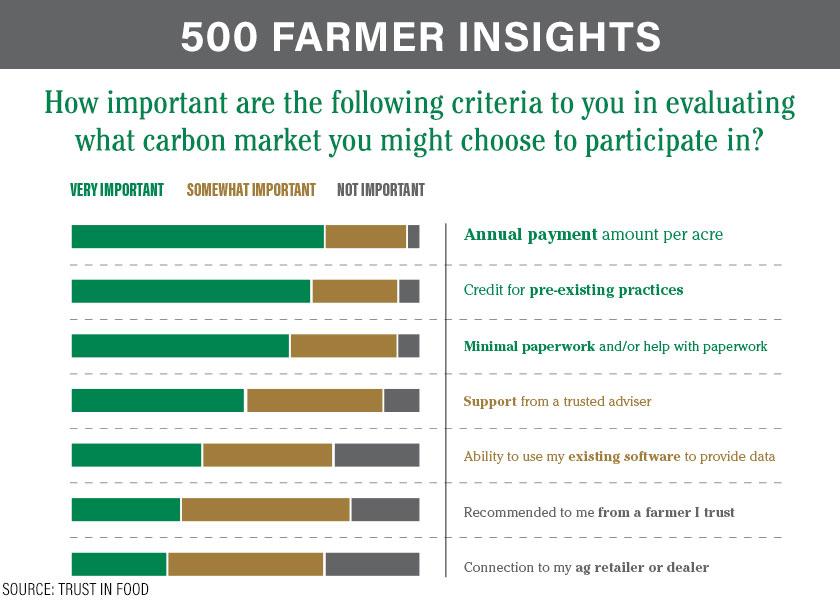Research Shows 90% of Farmers Won’t join Carbon Markets Without Changes

Despite the exponential growth in agricultural carbon market options, most producers aren’t biting.
New research based on 500 farmer insights suggests adjustments in payment amounts, credit for existing conservation practices and reduction in paperwork could help but won’t be a cure-all for enrollments.
“Failing to connect with drivers such as purpose, mission and legacy could inadvertently result in negative perceptions of carbon marketplaces as purely transactional efforts to commodify farmers’ hard work,” writes Cara Urban, lead author of the report from Trust In Food, Farm Journal’s sustainable agriculture initiative. “Producers might see such marketplaces as seeking to extract value from their operations at the lowest possible price, while requiring a lengthy and risky up-front investment of time, energy and expert advisers.”
The report isn’t designed to throw water on sustainable agriculture investments or carbon markets, says Amy Skoczlas Cole, executive vice president at Trust In Food. Instead, it balances marketplace excitement with farmers’ pain points and needs.
“We’ve witnessed exuberance in both the private sector and the U.S. government for using agricultural carbon markets as a tool to advance climate and food goals,” Cole says. “We wanted to understand how producers feel about this new opportunity.”
PARTICIPATION AND PROMISES
Around 90% of farmers are aware of carbon markets, and 3% are participating, according to the report. About a third say they’re still monitoring the landscape, and 59% report they won’t join without changes.
If carbon market organizations can meet farmers where they are, it’s possible they can capture the promise of the carbon economy.
GET THE CARBON FARMER REPORT
Find out what U.S. farmers say it will take to get active in carbon markets in an upcoming edition of the Trust In Food email newsletter. You’ll get the full report when it publishes. Sign up at TrustInFood.com
Nate Birt is vice president of Trust In Food, which supports farmers in adopting conservation agriculture.







